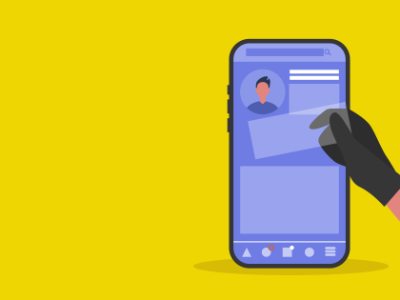The speed, convenience and anonymity of the Internet are making cyber crime a fast-growing activity. One recent study found that one in every five Americans has had personal information stolen or an account compromised because of their online activities.
Need a cyber crime definition or examples? In addition to online identity theft or financial fraud, types of cyber crimes can also include activities such as stalking, bullying, hacking, email spoofing, information piracy and forgery and intellectual property crime.
With so many potential threats out there online, how are you supposed to protect you, your kids and your information from cyber criminals? After all, cyber crime can’t be stopped completely. But sometimes it can be prevented. It all starts with practicing good online safety habits.
Here are seven things that you can start doing today to better protect against computer crime.
1. Make sure your security software is current – and update it regularly.
Having the latest security software goes a long way toward protecting against viruses, malware and other online threats.
2. Lock or log off your computer when you step away.
This ensures that no one else will have access to all your information.
3. Go offline when you don’t need an internet connection.
If your computer is always connected, it increases the chances that hackers and virus scans can invade your computer.
4. Take advantage of security settings.
On your smartphone, on your tablet, on your computer – use PINs or passcodes to protect someone from easily accessing all your information. For social media websites and apps, be aware of your privacy settings and change them to your comfort level so only the people you want to see information can see it.
5. Consider sharing less online.
Including information like your birthdate and the city where you live on your social media profiles can give criminals a more complete picture and make it easier for them to steal your identity.
6. Think twice about using public Wi-Fi.
Hackers can easily connect to public Wi-Fi and watch your every move, including what passwords and account information you enter while you’re connected. To keep your information safe, either don’t use public Wi-Fi or avoid entering private information and using apps that have passwords when you are on public Wi-Fi.
7. When in doubt, don’t click.
Cyber criminals can compromise your information through tweets, posts and online advertising, in addition to emails. If it looks suspicious, just delete it. Beware of anyone who implores you to act immediately.



